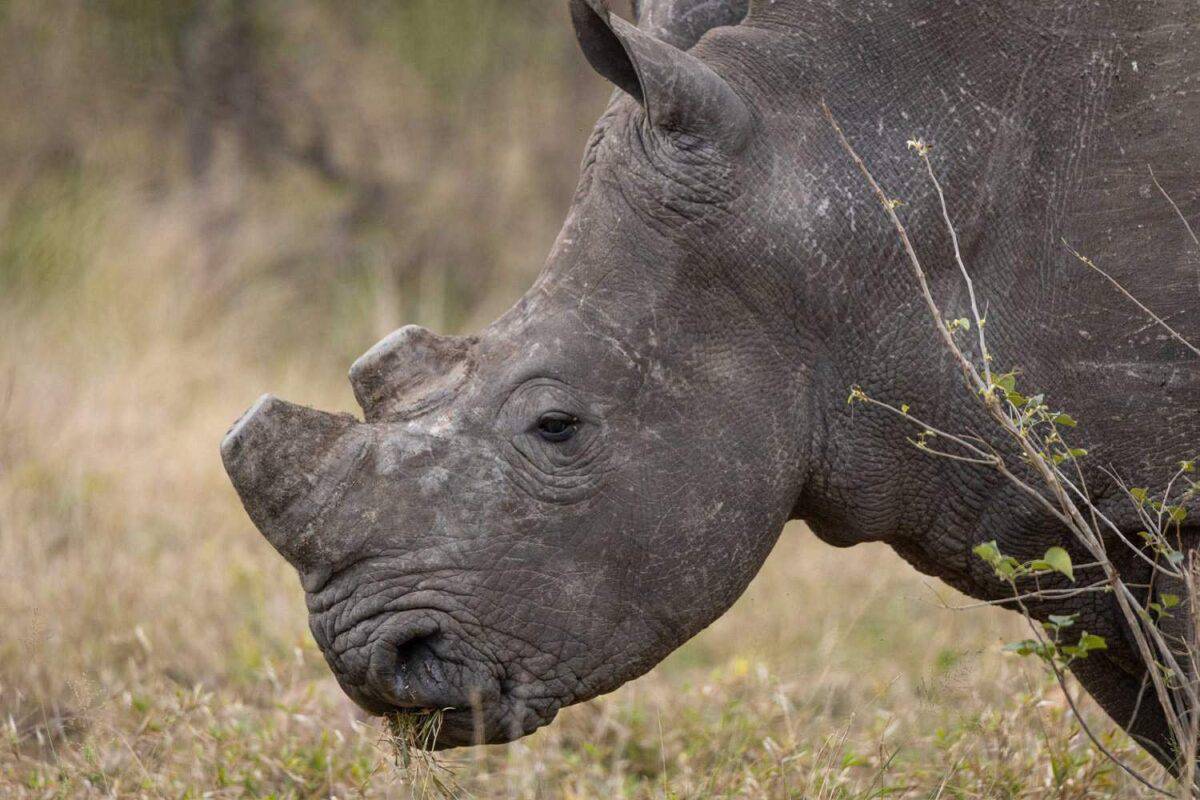The decision could save the species, fund conservation, and uplift rural communities across South Africa.

The Northern Cape High Court in Kimberley has ruled that conservation breeding facilities can be granted permits to export rhino horns.
This came after rhino conservationist Hendrick Diedericks applied for the court to review the MEC for Agriculture, Rural Development and Land Reform’s refusal to grant him permits to export white rhino horns.
Judge sets aside MEC’s decision
Judge Lawrence Gerald Lever made the landmark ruling, ruling in Diedericks’ favour and setting aside the MEC’s decision.
Diedericks applied for the permits, seeking to offset the costs of maintaining and protecting rhinos born in captivity from poaching by harvesting and then selling the white rhino horns in a sustainable manner that doesn’t harm the animals.
He indicated that his intention was not to make commercial profit but to plough back the proceeds into conserving the endangered animal.
Diedericks said it currently costs him around R20 million to feed, protect and breed the rhinos.
Refusing 10 permits, the MEC seemingly incorrectly referred to the Convention on International Trade and Endangered Species of Wild Fauna and Flora (CITES), saying exporting horns for commercial purposes was prohibited.
However, in his judgment, Lever said CITES seeks to regulate international trade of such fauna and flora but “does not as a blanket provision prohibit international trade of endangered species”.
“The MEC is directed to take a decision on whether to issue the applicant with a certificate within [seven] days of this order and to notify the applicant and his attorney of the decision…,” ruled Lever.
“… In the event that the decision is to refuse to grant a permit/certificate to the applicant, the MEC must simultaneously provide her reasons as contemplated by section 5 of the [Promotion of Administrative Justice Act] and a record as contemplated by rule 53.”
ALSO READ: Notorious South African wildlife criminal’s dubious pursuit of hunting permit in Botswana
He also ordered the MEC, who was the first respondent, and the minister of forestry, fisheries and the environment – the second respondent – to jointly pay the costs of the review application.
‘Landmark ruling’
Welcoming the “landmark ruling”, Diedericks said the court opened the door for legal and regulated international trade in rhino horn.
He said the decision could save the species, fund conservation, and uplift rural communities across South Africa.
“For decades, experts like Dr George Hughes and Dr Ian Player have argued that the solution to poaching has been obvious: allow ethical trade in rhino horn,” said Diedericks.
“Why? Because rhinos don’t need to die for their horns.”
He said rhino horns are made of keratin – dead tissue like hair and nails – and can be harvested from living rhinos without harm.
In addition, the fact that they grow back naturally makes them a renewable resource.
“This ruling unlocks millions in foreign revenue, supports community-led conservation, and shifts profits from poachers to protectors,” said Diedericks.
“Now, conservation-breeding operations can take hands with community reserves, where ethical horn trimming can fund both wildlife protection and rural livelihoods.
ALSO READ: Cross-border crackdown on illegal wildlife trade intensifies
“This model can rewild vast landscapes, uplift disadvantaged communities, and foster coexistence between people and wildlife,” he added.
Diedericks called the ruling a lifeline for rhinos and a bold step toward 21st-century conservation.
Threat of poaching
During his keynote address at the Rhino Renaissance Campaign Launch in Mpumalanga on 15 July, Forestry, Fisheries and the Environment Minister Dr Dion George said the rhino population had dropped largely due to poaching.
As of 2024, the population dropped to 14 389 from 20 000 in 2010.
“Yes, part of that story is environmental – droughts and climate impacts… But a large part of the story is about poaching and the trafficking of rhino horn – driven by organised crime, international trafficking, and profit,” said George.
He said poaching is not only a conservation issue, but it also threatens South Africa’s economy, national security, and the rule of law.
“The illegal rhino horn trade is linked to money laundering, corruption, and other serious crimes.”
George revealed that due to conservation interventions, there has been a reduction in poaching figures.
By the end of June, 195 rhinos had been poached across the country this year – a reduction of 35 compared to the same period in 2024.
NOW READ: Film used as a tool to combat the scourge of rhino poaching






